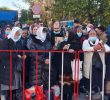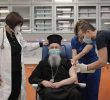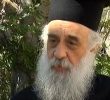Parlamentul Serbiei a votat ACORDUL DE “NORMALIZARE” cu KOSOVO

Parlamentul sârb a aprobat vineri seara acordul în vederea unei normalizări a relaţiilor Serbiei cu Kosovo, parafat la 19 aprilie, la Bruxelles, sub egida UE, de către premierii sârb şi kosovar.
Acest acord, denunţat de etnici ultranaţionalişti sârbi din Kosovo, a fost susţinut de o majoritate foarte largă din rândul celor 250 de deputaţi sârbi.
Chiar înainte de vot, deputaţii din cadrul coaliţiei naţionaliste, aflate la putere, şi din cadrul opoziţiei de centru-stânga au anunţat că votează pentru adoptarea acestui document. Astfel, dintre cei 203 deputaţi prezenţi, 173 au votat pentru acord, 24 au votat împotrivă, iar şase s-au abţinut.
Parlamentul sârb a fost îndemnat să susţină acţiunea guvernamentală şi nu a votat asupra conţinutului acordului. Încheierea acestui acord a fost recompensată luni de către Comisia Europeană (CE), care a recomandat deschiderea negocierilor de aderare a Serbiei la Uniunea Europeană (UE).
Premierul sârb Iviţa Dacici a declarat, adresându-se deputaţilor, că Serbia “nu mai deţine Kosovo de mult timp”. “Cineva trebuia să se angajeze la sarcina” de a încheia un acord cu albanezii din Kosovo, “pentru pune capăt trecutului, sărăciei şi înfrângerilor”, a spus el.
“Acest lucru este posibil doar dacă suntem curajoşi (…), dacă avem o viziune prin care să facem din Serbia o ţară prosperă”, a insistat Dacici. El a subliniat totodată că acordul nu înseamnă “în niciun caz recunoaşterea independenţei Kosovo”. “Da, am fi putut să respingem acordul şi să devenim, astfel, o Coree de Nord în Europa. Dar ce s-ar fi întâmplat, atunci, cu Serbia?“, a spus şeful Guvernului sârb.
Belgradul se opune ferm independenţei Kosovo, proclamate în februarie 2008 şi recunoscute până în prezent de 96 dintre cele 193 de ţări membre ONU, inclusiv Statele Unite şi 22 dintre cele 27 de state membre UE.
Deputaţi din cadrul Partidului Democratic din Serbia (DSS, naţionalist şi eurosceptic, cu 21 de parlamentari), care se opune acordului cu Priştina, au prezentat, în cursul dezbaterilor, solicitările formulate de reprezentanţi ai etnicilor sârbi din nordul Kosovo. Aceştia reclamă convocarea în Serbia a unui referendum asupra acordul de la Bruxelles, privind, între altele, gradul de autonomie acordat acestor aproximativ 40.000 de etnici sârbi.
Etnicii sârbi din nordul Kosovo sunt majoritari în acest teritoriu învecinat cu Serbia. Ei nu se supun controlului instituţiilor de la Priştina şi vor să rămână parte integrantă a Serbiei. Dacici a anunţat că Guvernul său nu se opune unui referendum, cu condiţia ca etnicii sârbi din nordul Kosovo să accepte rezultatul acestuia şi să participe la aplicarea acordului cu Priştina, în cazul în care este susţinut de majoritatea cetăţenilor Serbiei.
Peste 57% dintre sârbi ar susţine acordul cu Priştina, în cazul în care s-ar organiza un referendum în acest moment, iar 29% dintre ei s-ar opune, potrivit unui sondaj realizat de institutul local Factor Plus.
Comisarul european pentru Extindere Stefan Füle, aflat într-o vizită la Belgrad, a apreciat că autorităţilor sârbe le revine rolul să “aleagă calea de urmat” pentru a se asigura că aplicarea acordului va fi “viabilă”. “Indiferent care ar fi calea de urmat pe care autorităţile o vor alege, este necesar ca ea să ne apropie de aplicarea acordului, ci nu să ne îndepărteze”, a subliniat Stefan Füle la finalul unei întâlniri cu preşedintele sârb Tomislav Nikolici.
Aproximativ 200 de manifestanţi ultranaţionalişti au protestat în faţa Parlamentului faţă de în cheierea acordului la Bruxelles. Încadraţi de un important dispozitiv de poliţie, ei au scandat “Aţi trădat Kosovo“. În urma unor presiuni din partea Bruxelles-ului, Dacici şi premierul kosovar Hashim Thaci au parafat vinerea trecută, la Bruxelles, un acord de principiu în vederea normalizării relaţiilor între Belgrad şi Priştina.
Acest progres deschide calea unei apropieri a Sebiei de UE, după luni de negocieri dificile conduse de către şefa diplomaţiei europene Catherine Ashton.
- Sinodul BISERICII SARBE: Semnarea “ACORDULUI DE NORMALIZARE” dintre Serbia si Kosovo este TRADARE
- PONTA urmeaza neabatut agenda antinationala pe toate fronturile: “ROMANIA TREBUIE SA MEARGA ALATURI DE FAMILIA EUROPEANA IN CAZUL KOSOVO”
- Revolta sarbeasca fata de “AL IV-LEA REICH”
- Face Serbia “COTITURA ISTORICA”? Premierul sarb recunoaste implicit INDEPENDENTA KOSOVO
- BISERICILE SI MANASTIRILE STRAVECHI DIN KOSOVO – ASEDIATE, INCENDIATE SAU PROFANATE DE ALBANEZI. “Fantoma secesionismului bantuie prin Europa si poate deveni pandemica”


















 Doneaza pentru filmul "Scrum"
Doneaza pentru filmul "Scrum"





































































razboiul pentru Balcani intre Germania si Rusia se poate intui si de aici
http://www.dcnews.ro/2013/04/vocea-rusiei-publica-teorii-aberante-de-care-se-delimiteaza-serbia-se-va-razbuna-pe-romania-prin-recuperarea-banatului/
asta e TRADARE
http://www.strategic-culture.org/news/2013/05/22/us-boosts-military-presence-in-balkans.html
Pe scurt, cerbicia sârbilor kosovari care nu vor să ia act de trădarea politicienilor de la Belgrad, va fi frântă cu braț armat, fiind “pusă în valoare” o bază nato supranumită Micul Guantanamo.
Dar.. sârbii vor începe astfel discuţiile pentru integrarea în UE!
Este bine de avut în minte acestă situaţie pentru scenariile viitoare ale Ţinutul Secuiesc şi compromisurile ce urmează să fie asumate public de “ai noştri”, probabil în primăvara/vara anului viitor.